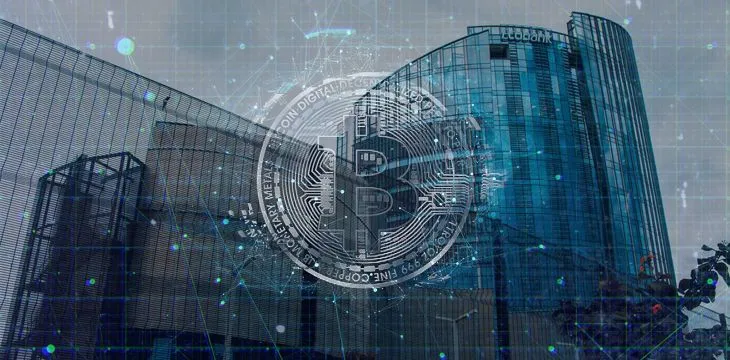|
Getting your Trinity Audio player ready...
|
Liechtenstein-based Bank Frick recently added support for the USDC stablecoin, allowing its clients to deposit, as well as buy and sell, USDC through their bank.
“With the addition of USDC, we enable our customers to process USD payments quickly and token-based,” said Stefan Rauti, the head of blockchain banking at Bank Frick. “Compared to the classic SWIFT procedure, the processing time is significantly reduced”
USDC integration allows Bank Frick users to send and settle payments at a faster rate than the SWIFT payments network used by a majority of banks. SWIFT transfers typically take between 24 and 48 hours to settle, while blockchain-based stablecoin transfers are often settled within minutes, if not hours, from the time they are sent.
Circle CEO and co-founder Jeremy Allaire expects to see more banks to add stablecoin support in the near future, saying it’s “a trend we are seeing and expecting to surge in the year ahead–regulated banks adding support for USDC, which is becoming a significant alternative rail to value transfer for banks.”
Allaire said banks are interested in adding support for stablecoins like USDC because they can serve as a more efficient value transfer rail than traditional methods like SWIFT.
A recent whitepaper from Former U.S. Commodity and Futures Trading Commission (CFTC) chair Christopher Giancarlo’s Digital Dollar Project echoes Allaire’s statement. The Digital Dollar Project white paper encourages the Central Bank of the United States to explore central bank digital currencies because it “improves time and cost efficiency, supports the USD as the world’s reserve currency, provides broader accessibility to central bank money and payments, and emulates features of physical cash in an increasingly digital world.”
The Digital Dollar whitepaper also encourages the U.S. government to put more energy towards its blockchain and digital asset research and development and warns that if they do not, that they will have to follow frameworks created by foreign governments.
Foreign governments and companies outside of U.S. seem to be leading blockchain development and advancement. The United States has been slow to work with blockchain technology and digital assets, while foreign governments, like China, and foreign companies, like Bank Frick, have found ways to integrate blockchain and digital assets into their business models to improve efficiency and satisfy customers.

 07-05-2025
07-05-2025 





